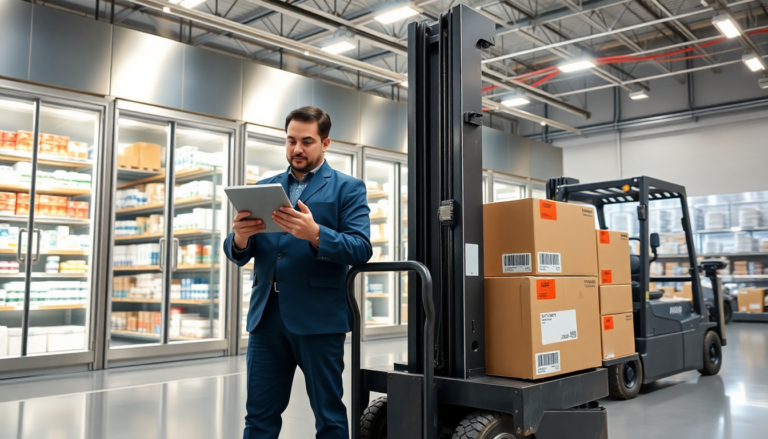Argomenti trattati
The landscape of cold chain logistics is evolving at an impressive pace, driven by cutting-edge technologies that are changing the way businesses manage their temperature-sensitive supply chains. With the global demand for products like pharmaceuticals, biologics, and perishable foods skyrocketing, companies need to adapt if they want to remain competitive. Curious about what’s shaping this sector? Let’s dive into the trends that are not just transforming logistics but are also paving the way for a more sustainable and compliant future.
Technological Advancements in Cold Chain Logistics
One of the most exciting developments in cold chain logistics is the swift adoption of advanced technologies. Innovations such as the Internet of Things (IoT), blockchain, and artificial intelligence (AI) are fundamentally altering how supply chains are monitored and managed. Have you ever wondered how your groceries can be tracked from the farm to your fridge? IoT devices make real-time tracking of temperature-sensitive shipments possible, ensuring products stay within the required temperature ranges throughout their journey. This technology not only boosts product safety but also enhances operational efficiency.
Then there’s blockchain technology, which brings a new level of transparency and traceability to the supply chain. By creating an unalterable record of each transaction, blockchain helps companies verify the integrity of their products and simplify compliance with regulations. And don’t overlook AI-driven analytics; they empower businesses to make informed decisions by predicting demand patterns and optimizing inventory management. As these technologies continue to mature, they hold the promise of making cold chain logistics more reliable and efficient than ever.
Rising Demand for Temperature-Sensitive Products
The surge in global demand for temperature-sensitive products is another key factor driving changes in cold chain logistics. You might not realize it, but the expansion of the healthcare sector, along with a growing consumer preference for fresh and organic foods, is fueling this trend. As more people seek products that require meticulous handling and precise temperature control, logistics providers are under increasing pressure to maintain product integrity.
The COVID-19 pandemic has further underscored the importance of efficient cold chain logistics, especially when it comes to delivering crucial medical supplies and vaccines. In response, many companies are pouring resources into enhancing their logistics capabilities to meet this escalating demand. This shift presents both challenges and exciting opportunities for innovation and investment within the cold chain sector.
Sustainability and Compliance in Cold Chain Logistics
Sustainability is becoming a critical focus across all industries, and cold chain logistics is no exception. Businesses are actively searching for ways to reduce their environmental impact while ensuring the quality and safety of their products. This journey includes adopting energy-efficient refrigeration systems, minimizing waste, and implementing sustainable packaging solutions. Isn’t it fascinating to see how logistics can go green?
Regulatory compliance also plays a vital role, particularly in the pharmaceuticals and food industries. Companies must navigate a maze of strict guidelines and standards to guarantee the safety and quality of their offerings. As regulations evolve to tackle sustainability issues, businesses need to be proactive in adjusting their practices to meet these new requirements.
Looking Ahead: The Future of Cold Chain Logistics
So, what does the future hold for cold chain logistics? It’s being shaped by a blend of technological advancements, rising demand for temperature-sensitive products, sustainability efforts, and stringent regulatory compliance. As these trends continue to unfold, businesses must stay nimble, embracing innovation to strengthen their supply chain resilience.
In conclusion, the cold chain logistics sector stands at a crucial crossroads, fueled by the need for improved efficiency, transparency, and sustainability. By harnessing state-of-the-art technologies and adapting to shifting consumer expectations, companies can safeguard the integrity of their products while positioning themselves for success in an increasingly competitive marketplace. Are you ready to explore the future of cold chain logistics?

